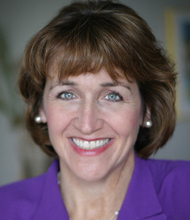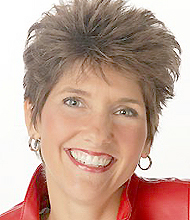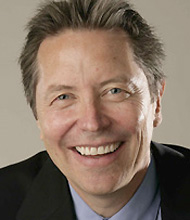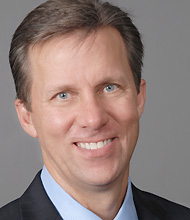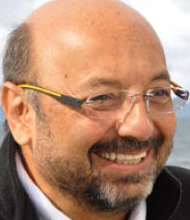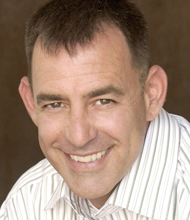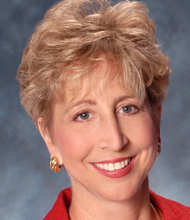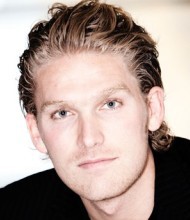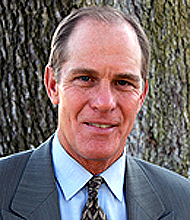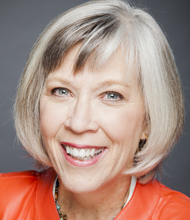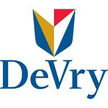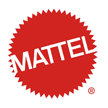Change ManagementCommunication SkillsConflict ManagementCorporate Team BuildingMotivational SpeakerTeam Building
| TRAVELS FROM |
|
SPEAKING FEE RANGE ** Please note that while this speaker’s specific speaking fee falls within the range posted above (for Continental U.S. based events), fees are subject to change. For current fee information or international event fees (which are generally 50-75% more than U.S based event fees), please contact us. $5,000 to $10,000 |
|
BOOK LIZ BERNEY speakers@coreagency.com |
Change ManagementCommunication SkillsConflict ManagementCorporate Team BuildingMotivational SpeakerTeam Building
| TRAVELS FROM |
|
SPEAKING FEE RANGE* $5,000 to $10,000 |
|
Book Liz Berney speakers@coreagency.com |
- A renowned consultant, trainer, public speaker, and coach who will inspire organizations to embrace conflict and leverage change, helping leaders increase organizational value.
- Founder and Partner of Berney Associates, whose clients include Bill & Melinda Gates Foundation, Coca Cola, and AT&T.
- Recipient of the Top5 Speaker on Team Building award from SPEAKING.com in 2011 and the Small Business Excellence Award from the SBIEC in 2015.
- Master MBTI Practitioner and professor at University of Pennsylvania's Wharton School of Business and the University of Maryland’s Robert H. Smith's School of Business.
Dr. Liz Berney is a renowned consultant, trainer, public speaker, and coach for clients including: Bill & Melinda Gates Foundation, Coca Cola, Tropicana, The National Quality Program (Baldridge Award), AT&T, Fannie Mae, American Red Cross, Quaker Oats, American Management Systems, Cisco, Human Rights First, National Public Radio, Dun and Bradstreet, John F. Kennedy Center for the Performing Arts, Marriott Corporation, MCI Telecommunications Corporation, the U.S. Environmental Protection Agency, the U.S. Capitol, the U.S. Departments of Health and Human Services (Centers for Disease Control, National Institutes of Health), Education, Veteran Affairs, Treasury, and Homeland Security among many others.
Dr. Berney currently teaches as an Adjunct Professor for Executive Programs for both the University of Pennsylvania’s Wharton School and for the University of Maryland’s Robert H. Smith School of Business, where she also teaches for their online MBA Program. She is a former Instructor for the American Management Association, the Accelerated MBA Program at George Washington University, Georgetown University, and George Mason University. She founded, designed, and directed the Organization Development Certificate Program at Georgetown University.
Her Bachelor's Degree is in Psychology from Yale University (Distinction in Psychology) and her M.A. and Ph.D. in Industrial/Organizational Psychology are from the University of Maryland, where she won the Teaching Excellence Award for her undergraduate teaching. She was a Professor of Industrial and Organizational Psychology at George Mason University from 1985–1988.
Dr. Berney is a Master MBTI Practitioner, and she has advanced training in the Myers Briggs Type Indicator, Group Dynamics and Facilitation, Future Search Planning (Marvin Weisbord), Clark-Wilson 360 Surveys, VOICES (Lominger) 360 for Leaders, Interests-based Negotiation, Change Management, and Leadership Development.
Recent articles include “The Co-Creation of Conflict” in Yes You Can!: Reaching Your Potential While Achieving Greatness, the American Psychological Association’s Monitor, Washington Woman, the Medical Office Manager, the Society of Actuaries Stepping Stone, and the Law Office Administrator. She was awarded Top5 Speaker on Team Building (along with Stephen Covey) from SPEAKING.com in 2011 and the Small Business Excellence Award from the SBIEC in 2015.
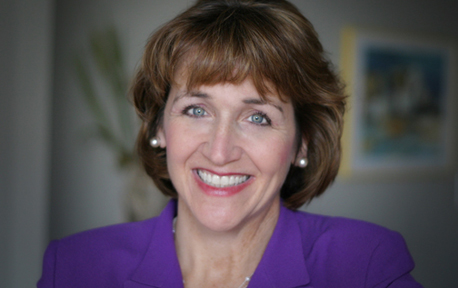 I want people to leave feeling energized and inspired to make changes that help them, their teams and their organizations. I want people to leave feeling energized and inspired to make changes that help them, their teams and their organizations. | |
| |
 | What do you want people to learn/take away from your presentations? |
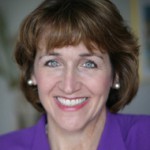 | A couple of things: I want people to leave feeling energized and inspired to make changes that help them, their teams and their organizations. I want them to understand current best practices and the research around what we know works. Finally, I want them to gain concrete strategies that they will apply pronto! |
 | What kind of special prep work do you do prior to an event? How do you prepare for your speaking engagements? |
 | I always tailor my talks to the needs and the culture of the audience, because it makes all the difference. Once I clarify what the organization wants to achieve as a result of the talk (and I ask for concrete examples), I ask to speak to a sampling of folks that will be attending to learn what is on their minds. I also do research on the industry and its practices so I have a good enough understanding of what participants do and how I can be helpful to them. |
 | Have you had any particularly memorable speaking engagements / unusual situations arise while on the road? |
 | Well there was that one plane I missed a plane by going to the wrong airport (DC area has three), which resulted on my driving on dark, windy, barren roads to Dartmouth College at 2 in the morning!
Seriously though, there are many memorable ones. I spoke for an international association through Wharton Exec Ed (University of Pennsylvania) in Budapest for international leaders in which we facilitated an actual organizational change simulation with them. It was incredibly powerful to see them dealing in the moment with the change; then, we helped them integrate their learnings with my talk on Change. Ultimately, I think great speaking is about: (1) knowing your audience and their challenges, (2) engaging and inspiring them, (3) having interaction with them rather than lecturing at them and, (4) keeping it lively, upbeat, practical and real. I use many stories from 25 years of consulting in their particular industries as well as case studies, skill practices, demonstrations and panels. It can’t be about me – it has to be about them! |
| Given that all people need to listen, negotiate, play on teams, live with others, give and receive feedback, motivate and be motivated, my content applies to most everyone. | |
| |
 | What types of audiences would most benefit from your message? |
 | Honestly, people are people. Given that all people need to listen, negotiate, play on teams, live with others, give and receive feedback, motivate and be motivated, my content applies to most everyone. That being said, I find that I work a lot with people who are different from me – engineers, scientists, IT specialists, doctors, lawyers, and accountants, for example.
Since I want to impart new ways of thinking and practices that will help make a difference at work, I like to work with these groups, many of whom were not afforded the opportunity to learn about my topics. How many engineers had training in learning to team? Doctors in active listening? Lawyers in giving and receiving feedback? You get my drift! |
 | Which of your keynote speaking topics are your favorites and why? |
 | Since I only cover topics close to my heart, I can’t say I have any favorites. I love introducing the MBTI to folks because it can honestly save work and non-work relationships. What’s most important to me is matching the topic to the client’s need. |
 | What inspired you to start doing speaking engagements? |
 | When I was a full-time tenure track professor, I loved the doctoral students who worked all day and took classes at night. They had a zeal about them. They wanted to take what they learned and put it to work at work. I realized I could continue “teaching” and help people at work through speaking more than teaching. Once I had that realization, I left academia and started my speaking, facilitation and coaching business. |
| I always have a plan and do my homework to understand the group...but then I work with the energy in the moment to address the audience’s greatest concerns. | |
| |
 | How do you keep your audience engaged and actively listening during your keynotes? Do you use case studies, personal stories and/or in your speeches? |
 | All of the above – no matter the size, I make the presentation interactive. I had one keynote of 300 people where I put 6 people up on the stage, gave them microphones and interviewed them. It wasn’t planned. Someone in the audience voiced a question, germane to the topic, that garnered a lot of energy in the crowd and it was clear there were differing opinions, so I asked for representatives of the different opinions and asked the rest of the audience to question them directly. I then integrated panel responses with the central points of my talk. I always have a plan and do my homework to understand the group (through interviewing and research) but then I work with the energy in the moment to address the audience’s greatest concerns. |
 | What are some of the successes you've helped clients achieve? |
 | I think my proudest accomplishment was facilitation work I did at the Gates Foundation. I helped a group of international leaders in the field of malaria with competing interests and needs come together and agree on a future direction for the very important field of malaria.
For The Society of Women Engineers and BP, I helped women engineers identify strategies to enhance their work effectiveness; many struggled in a primarily male work environment. At Dun and Bradstreet, I provided listening and feedback techniques tailored to different Myers Briggs personality types. For the Society of Actuaries, I provided multiple talks on areas that were fairly new to many actuaries: how to gain input from their folks, how to tailor their feedback to different personality types, and how to collaborate with others. At PepsiCo, I helped leaders learn concrete strategies to team more effectively with their peers in different departments. |
“Liz Berney is definitely a speaker/trainer for our times. In her address to the entire national leadership of NCSHA, she energized the audience, helped them reexamine their role in leadership, teamwork, and office dynamics in today’s fast-paced society.…With Liz’s keen insight and funny, fast-paced delivery, the time sped by. Liz Berney is one of those speakers who can make you laugh, make you cry, but most of all, make you want to be better at what you do.”
Cynthia Adcock, Director of Marketing and Communications,
National Council of State Housing Agencies
“It is my observation that Dr. Berney is high energy, humorous, and entertaining as well. She has an excellent ability to ‘read’ her audience and engage their interests and enthusiasm and be responsible to their needs. Dr. Berney’s personality is such that people are drawn to her warmth and vivaciousness. I can honestly say that the success of the Mentoring Program at NIST is due in large part to Dr. Berney’s presentation skills.”
Rhoda Levin, Former Chair, NIST Mentoring Program
National Institute of Standards and Technology
“Liz is an engaging and entertaining trainer and speaker, and more importantly, she is extremely knowledgeable in her field. We received positive comments from every staff member about her sessions. I think it is most revealing however, that our staff continues to reference points/comments/suggestions that Liz made during her sessions over a year after her sessions.”
Karen Titlow, Director of Operations
The Leapfrog Group
“Liz’s training skills are excellent. She is able to get information across in an understandable and entertaining fashion. In addition, Liz checks in with people individually and as a group to ensure the message is clear. Liz is very good at group interaction exercises. I have seen her take a group who appears not to be interested in a particular exercise – encourage participation – with the net product being strong participation and buy-in. This is where Liz truly excels”.
Helen Noble, Director, Workforce Relations Division
National Institutes of Health
“While our staff can be critical, they described Liz as ‘excellent’, ‘energetic’, ‘enthusiastic’, ‘knowledgeable’ and ‘very approachable’. Likewise, they spoke highly of the ‘interactive exercises’ and the ‘variety of training approaches’ that kept the day moving along. Liz made the day both productive and valuable through her high energy, positive attitude, and tremendous subject knowledge and facilitation skills.”
Jamie Ambrosi, Acting Deputy Director
Baldrige National Quality Program
Partial Client List:
ABB, Inc.
American Management Systems
AT & T
Banyan Global
Booz, Allen & Hamilton
BP
Broit Light
(C) Management Services
Cal-Amforge
Cherry Road Technologies
Christopher Consultants
Cisco
Clark Construction
Coca Cola
Commvault
Crestline Hotels
DAI
Davies Consulting
DBC Public Relations
Dun & Bradstreet
Edgewood Realty Corporation
EG&G Technical Services
ESAB Welding and Cutting
Fannie Mae
Global Risk Capital
HOK Architecture
Hughes Network Systems
ICF Macro
LLE Translation Services
Lockheed Martin
Logicon
Marriott Corporation
MCI
MedImmune
Merritt Group
MITRE Corporation
MTI Advantage
Northrop Grumman
Quaker Oats
Raytheon
Reinhart Boerner Van Deuren
Re/Max Allegiance Location Services
Savantage Solutions
Shannon & Manch
Sheraton Hotels
Strategic Management
Tauri Group
Tech Data
Tropicana
We Localize
Westin Hotels
Dartmouth College, Office of Alumni
Georgetown University, School of Summer & Continuing Education
George Washington University, School of Business
John Hopkins University
Acupuncture and Oriental Medicine Alliance
American Association of Museums
American Association of Oriental Medicine
American Institute for Cancer Research
American Institute of Architects
American Podiatric Medical Association
American Psychiatric Association
American Resort Development Association
Society of Women Engineers
American Red Cross
Asia Foundation
Bill and Melinda Gates Foundation
Congressional Management Foundation
Daughters of the American Revolution
United States Army
Central Intelligence Agency
Centers for Disease Control and Prevention
Congressman Wexler′s Office
Department of Agriculture
Department of Commerce
Department of Education
Department of Health and Human Services
Department of Homeland Security
Department of Housing and Urban Development
Department of Labor
Department of Treasury
Department of Veteran Affairs
Environmental Protection Agency
House of Representatives
Internal Revenue Service
Library of Congress
NASA
National Institutes of Health
National Park Service
United States Navy
United States Senate
Smithsonian
World Bank
Great leadership is an art and a science. Dr. Liz Berney’s wants to help your organization meet the challenge of change. With presentations like “Creating Win-Wins at Work,” “Don′t Speak Louder—Just Make Sense!” and “Thriving in Continuous Change,” Dr. Berney promises to deliver practical, thoughtful, and engaging programs. She will have your organization referencing her talk for months—even years—after. She knows what works and is enthusiastic about sharing her insight.
Take all your preconceived notions about typical teamwork and leadership talks and throw them out the window. Dr. Berney gets the information across and does so in an entertaining way. Even the most pessimistic of team members will leave her talk buying in to her message and excited to implement her suggestions.
Creating Win-Wins at Work
Win-Win Negotiation is the only kind of negotiation that solves problems while building relationships. Learn the key tenets of Win-Win negotiation including: getting to interests, identifying options, developing a BATNA. Learn how to think outside of the box & move from lose-lose to win-win. Liz demonstrates how to use Win-Win negotiation to get a raise, a new job, work out a problem with a customer or colleague.
Don′t Speak Louder -- Just Make Sense!
Personality differences are one of the major reasons conflict occurs at work, sometimes resulting in turnover. Learn specific strategies for relating to customers, employees, colleagues and bosses more effectively at work. Learn how to tailor your communication strategies with those that are different from you, how to influence and persuade and how to have difficult conversations.
From Pain to Gain: Leveraging Conflict for Advantage
Is your conflict style so accommodating that everyone takes advantage of you? Do people steer clear from you because you are too combative? Do you find yourself stuck in the middle as the peacemaker all too often? Take a mini-assessment to help identify your style. Learn the strengths and weaknesses of your style and which conflict style works best when.
From Slug to Star: Motivating People at Work
Learn what motivates different people and how to help direct someone′s passion, energy and skills. From her years consulting and teaching as an organizational psychologist, Liz will explain what motivates people and how to mentor and coach people to reach their personal best. Using anecdotes from her consulting and mini-case scenarios, Liz will show you how to inspire the best in your employee, colleague, customer, even your boss!
Managing Challenging People Before They Manage You!
The workplace is filled with different kinds of challenging people, or at least challenging behaviors, with which one must deal. Cranky customers, controlling employers, uncooperative colleagues and passive aggressive subordinates are only a few examples. Learn the different types of challenging behavior and tailored strategies to address these challenges. Challenging people will never go away but their behavior can be managed effectively with the right skills!
Phenomenal Teams: What Makes Them Tick?
Why are some teams high performing while others are mediocre at best? Learn what it takes to be a top performing team. Take the "Berney checklist" to see if your team is on its way to success. Learn how to address the specific challenges of cross-functional teams with unique tactics to raise these teams to top performance.
The Emotionally Effective Leader
In this day and age, emotional intelligence can make the difference between good performance and top performance. Learn the key components of emotional intelligence, and how you can become more emotionally intelligent. Learn how to listen actively, be curious and come to win-win solutions.
Thriving in Continuous Change
Whether at work or at home, we live in a time of constant change. In order to continually adapt to change, Liz teaches how to navigate the high and low waters of change. Learn specific strategies for managing feelings of loss, isolation and anxiety throughout the change process. Learn how to find opportunities for personal and career growth and development during times of change. Leaders, find out how to respond most effectively to staff struggling with change.
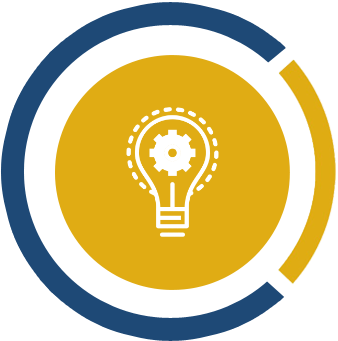
In this interview, Dr. Liz Berney discusses:

 VIDEO
VIDEO TESTIMONIALS
TESTIMONIALS PROGRAMS
PROGRAMS SPEAKING
SPEAKING INTERVIEW
INTERVIEW